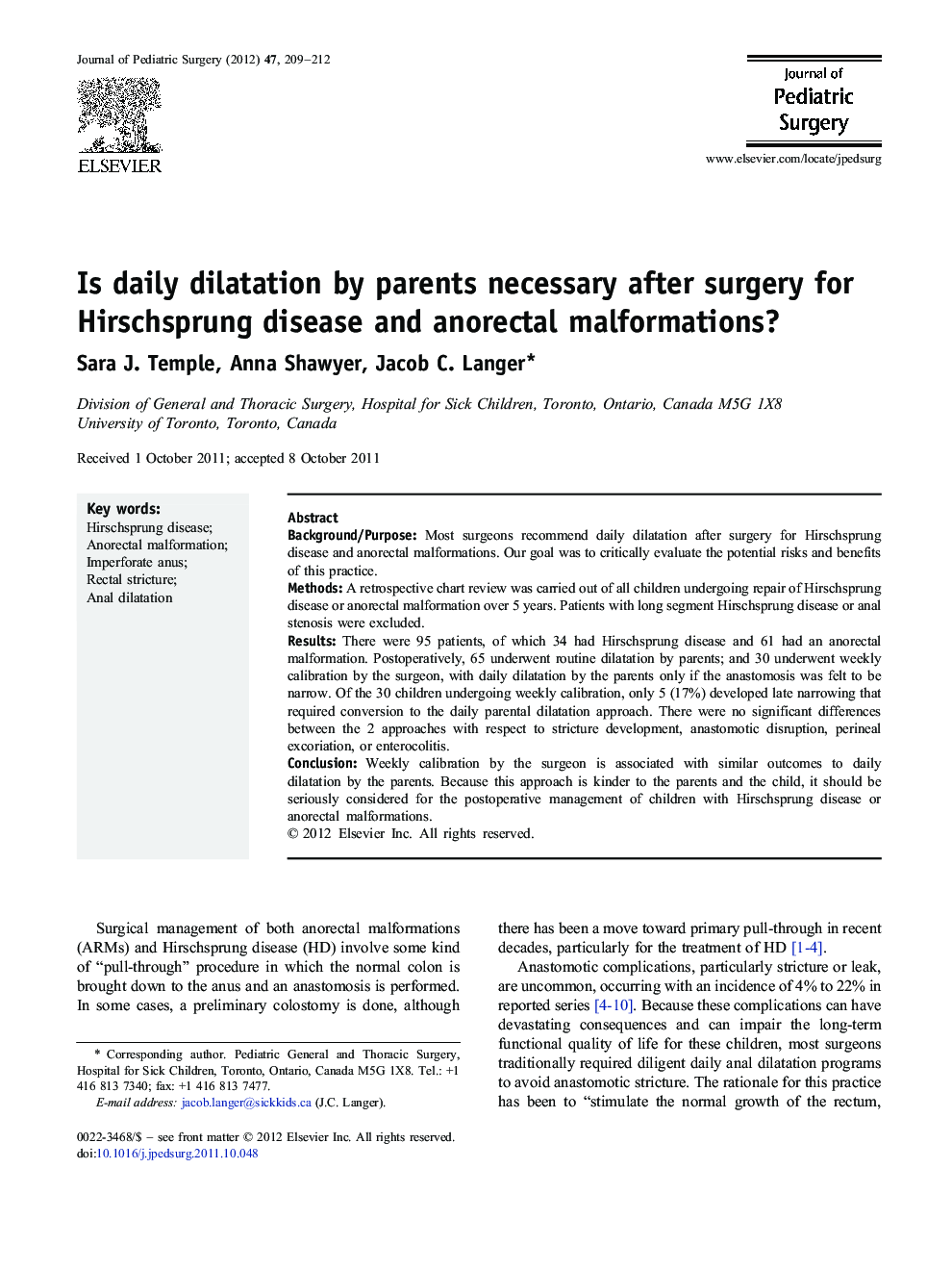| Article ID | Journal | Published Year | Pages | File Type |
|---|---|---|---|---|
| 4156770 | Journal of Pediatric Surgery | 2012 | 4 Pages |
Background/PurposeMost surgeons recommend daily dilatation after surgery for Hirschsprung disease and anorectal malformations. Our goal was to critically evaluate the potential risks and benefits of this practice.MethodsA retrospective chart review was carried out of all children undergoing repair of Hirschsprung disease or anorectal malformation over 5 years. Patients with long segment Hirschsprung disease or anal stenosis were excluded.ResultsThere were 95 patients, of which 34 had Hirschsprung disease and 61 had an anorectal malformation. Postoperatively, 65 underwent routine dilatation by parents; and 30 underwent weekly calibration by the surgeon, with daily dilatation by the parents only if the anastomosis was felt to be narrow. Of the 30 children undergoing weekly calibration, only 5 (17%) developed late narrowing that required conversion to the daily parental dilatation approach. There were no significant differences between the 2 approaches with respect to stricture development, anastomotic disruption, perineal excoriation, or enterocolitis.ConclusionWeekly calibration by the surgeon is associated with similar outcomes to daily dilatation by the parents. Because this approach is kinder to the parents and the child, it should be seriously considered for the postoperative management of children with Hirschsprung disease or anorectal malformations.
